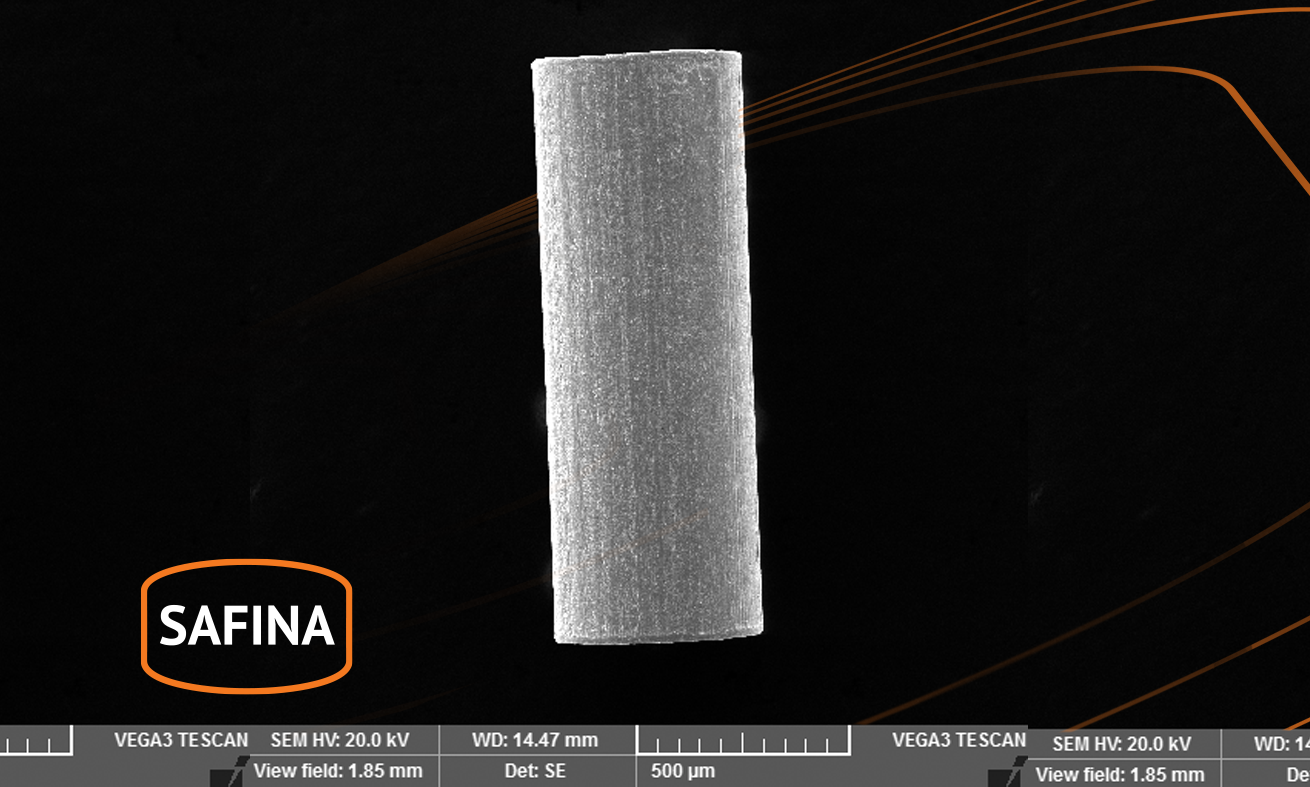Safina is an established manufacturer of precious metal products for various industries with a history for over 50 years, including recycling of precious metals and their reuse in production. Considering development of the industry and due to the advance of processes and products in Safina, the capacity and capabilities of production of precious metal pins and their alloys are significantly increasing.
Safina has a number of unique technologies that are used for modern, traditional and innovative products. The production of pins and wire cut lengths is just such a field.
Benefits and application specifics of using pins in production:
- Automation of processes using pins as feedstock
- Using monitored feeder and keep precise batch
- Easy material and weight control
- Finished part without post-processing waste
- Standard, slip-fit, oversized, press-fit types of pins
- Fitting parts use directly as connector or transmission part
- Controlled dimensions and mechanical characteristics for direct fitting
- Direct use in feedthrough assemblies for active devices
On the one hand, pins or cut wire lengths are the only solution for some applications in already established industry, and on the other hand, using pins is a sign of the trend towards automation in production. Pins are used as a suitable solution of finished parts for components or devices without need of further processing. It is for these reasons that there is a growing tendency to use it in production as part of the transition from standard to automatic production. We produce standard pins in diameters of 0.5-3.0 mm and in lengths of 3-60 mm. However, our capabilities are much wider for pins and cut wire lengths, where we are able to offer diameters from 0.08 mm to 6.35 mm and lengths from 1 mm to 500 mm. The production and cutting technology vary – precise cutting, cutting (chopping), pressing.
To be more specific:
Contact pins or connectors, as an example, are high standards for good signal and power transmission demanding low resistance in electrical and mechatronic systems. Contact pins are used for connection and energy transfer in assembly and joining technology, sensor technology, and in the medical industry. Such pins have to be reliable, durable and proper functional in exterior or harsh conditions. All these requires pins which utilize the stable environmental resistance and electrical properties of Platinum, Palladium, Gold and their specific alloys. Therefore, there must be a various selection of materials – Pt, Pd, Au and alloys PtIr, PtRh, PtPd, PdAu, PdIr, PtAu or PtPd.
Pins are more than just connectors. They enable the reliable and essential transfer of power from the feedthrough assembly to the electrodes. Pins are the preferred choice for feedthrough assemblies in active devices as well as for use as connectors with capacitors and batteries. Since they are a critical component for energy transfer in the device, it is necessary to maintain chemical composition, cleanliness, surface quality, mechanical properties and dimensions. Safina consistently follow all these requisites to fulfil customer’s requirements or even exceed their expectations.
In general:
The pins manufactured in Safina are given precisely the right properties, are resistant to corrosion, and have a long service life. Our precision pin manufacturing provides high-quality, cost-effective solutions for customers across many industries. Precious metals expertise, design capabilities, and quality processes enable our team to produce pins for broad range of applications and demanding needs. We find solutions at the lowest possible price considering the customer’s requirements and specifications. The pins are a product of minimum or no scrap that can be formed or cut. Our pins are made at a fraction of the cost compared with machined parts. Thus, we offer more options of final division. Right the final procedure can make the customer’s decision cost-effective. We offer precise cutting, cutting or pressing as final procedure based on requirements of physical properties and tolerances of a pin.
Production process:
- Alloy preparation and melting
- Material casting (Continuous or Ingot)
- Grinding and Forming
- Rolling and drawing
- Preparation material for final processing
- Cutting / Precise Cutting / Pressing
- Cleaning and sorting
- Inspection
- Packing
Materials:
Pins and wires cut lengths can be made from pure metals – Silver, Gold, Platinum, Palladium. We also offer a full range of precious metal alloys. The alloys can be made of pure precious metals only – e.g. PtIr, PtRh, AuPd, AgAu, AuPt or with other non-ferrous metals – Cu, Zn, Ni, In, Mn, Sn, Si, Ga, Ge etc.
Used materials depends on the application and customer requirements. The range of alloys is wide, we produce alloys according to ISO and ASTM standards, but also as per customer’s specifications Otherwise, we are able to develop a custom alloy as per customer’s demand.
Pure Platinum or PtIr, PtRh alloys are the most used metals for medical applications. These alloys are also used in automotive applications, where we also offer special IrRh alloys. A variety of contact materials are used In electronics from pure Silver to Ag/Au/Pt/Pd alloys with other metals such as Cu, Zn, Ni. The foregoing is also applicable for sensor materials, where a pure metal (mostly Silver) often represents the majority, but also alloys with an element that brings unique properties – e.g. Ga, Ge, Li, Pd, etc. Pure Silver or Gold and possibly Ag/Ni alloys are mostly found in connectors. Ag/Cu alloys are commonly used for electrodes. Assembling parts, components or transmission elements are usually made of Ag/Cu, Ag/Ni alloys.
Industries:
Medical, Electronics, Automotive, Semiconductors, Aerospace, Communication, Petroleum/Nuclear, Military, Laboratory.
Field of Applications:
Connectors, probes, electrodes, signal and power transmission, PVD, sensor technology, mechatronic systems, assembly and joining technology, laboratory instruments and reference material.

